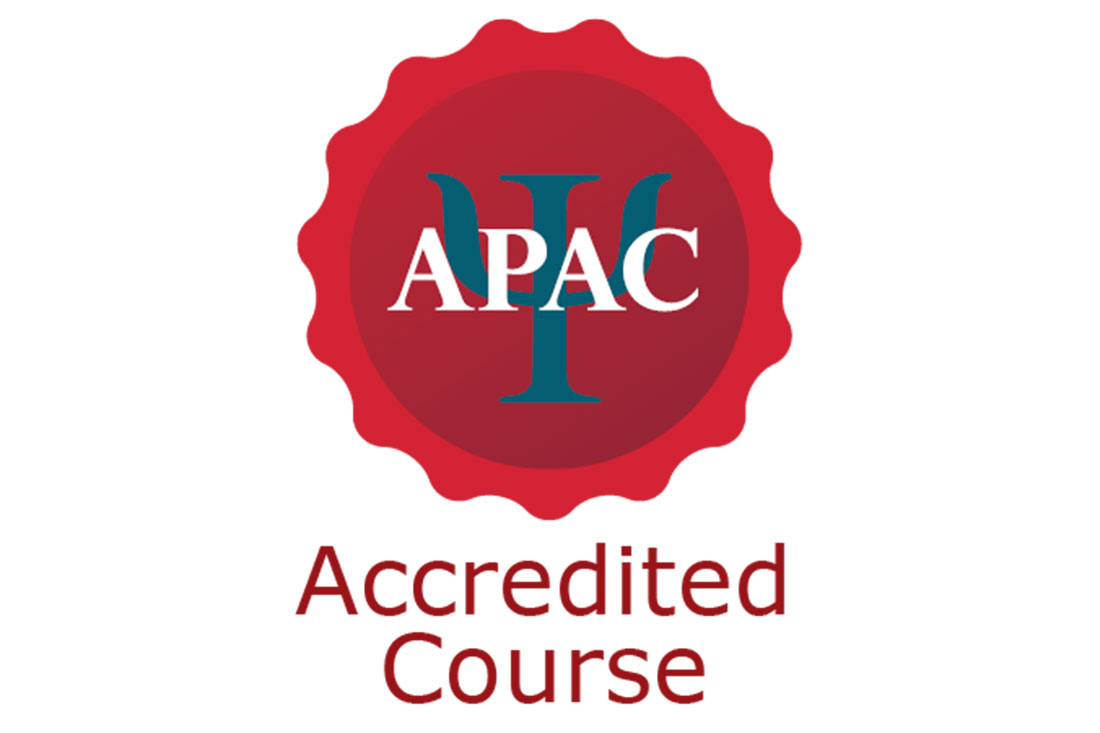Support
‘I really enjoy studying the double degree because of the variety it offers. In a semester where I am completing two law and two psychology subjects, I’m able to switch focus between law to psychology subjects when I want something different.
Since a law degree is 4 years and the double degree with psychology was 5.5 years, it was a no brainer to me to stay back the extra 1.5 years and come out with two degrees instead of one. I believe that combining both law and psychology will give me many more job opportunities.’
Bachelor of Behavioural Science (Psychology)/Bachelor of Laws (Honours) student
Career advantage
'I chose a double degree because of the flexibility that it'll give me once I get into the workforce. So with my psychology and law degree I have a lot more career opportunities. It also gives me that advantage in the market when I'm looking for a job.'
Learn from experts
'One of my psychology lecturers works in domestic violence counselling and often speaks to us about how real people are affected by it. It’s these kind of case studies that interest me because I know I’m going to encounter difficult situations like this when I’m a barrister.'
Real student experience
Victoria Harris talks about studying psychology at QUT and moving from a regional area.
Learn from the best
Science (Psychology) program and QUT researcher, Dr Melanie White, received a highly regarded Churchill Fellowship in 2013 to pursue her research into the genes linked to substance abuse in adults. The results of her research will help clinicians make customised treatment plans based on someone’s specific genetic profile.
Accreditation
Full accreditation with the Australian Psychology Accreditation Council means that this course is accredited by a national and international accreditation authority, giving you a highly recognised qualification. This course is part of a sequence that can lead to eligibility for registration as a psychologist. APAC is the only Australian entity with the authority to accredit courses that will be recognised by the Psychology Board of Australia.
Support
‘I really enjoy studying the double degree because of the variety it offers. In a semester where I am completing two law and two psychology subjects, I’m able to switch focus between law to psychology subjects when I want something different.
Since a law degree is 4 years and the double degree with psychology was 5.5 years, it was a no brainer to me to stay back the extra 1.5 years and come out with two degrees instead of one. I believe that combining both law and psychology will give me many more job opportunities.’
Bachelor of Behavioural Science (Psychology)/Bachelor of Laws (Honours) student
Career advantage
'I chose a double degree because of the flexibility that it'll give me once I get into the workforce. So with my psychology and law degree I have a lot more career opportunities. It also gives me that advantage in the market when I'm looking for a job.'
Learn from experts
'One of my psychology lecturers works in domestic violence counselling and often speaks to us about how real people are affected by it. It’s these kind of case studies that interest me because I know I’m going to encounter difficult situations like this when I’m a barrister.'
Real student experience
Victoria Harris talks about studying psychology at QUT and moving from a regional area.
Learn from the best
Science (Psychology) program and QUT researcher, Dr Melanie White, received a highly regarded Churchill Fellowship in 2013 to pursue her research into the genes linked to substance abuse in adults. The results of her research will help clinicians make customised treatment plans based on someone’s specific genetic profile.
Accreditation
Full accreditation with the Australian Psychology Accreditation Council means that this course is accredited by a national and international accreditation authority, giving you a highly recognised qualification. This course is part of a sequence that can lead to eligibility for registration as a psychologist. APAC is the only Australian entity with the authority to accredit courses that will be recognised by the Psychology Board of Australia.












Highlights
- Learn to apply psychological principles to legal issues and concerns.
- Benefit from meaningful connections with high profile industry employers and classes with leading and internationally renowned experts.
- Graduate to work in the development of mental health and legal policies, in legal-psychological research, or as a lawyer in corporate, social or clinical environments.
- Take the first step towards a career as a registered psychologist.
- Attend classes with leading and expert teachers.
- Joinwork placementsandhands-on learning experiencesthat will prepare you for the real world of law.
- Exploreinternational study and placement opportunitiesduring your studies.
- Enjoy inner city facilities including the QUT Law Library and courtrooms.
- Access a range ofscholarships and supportto assist you with your studies, life at uni and preparation for your career.
Highlights
- Learn to apply psychological principles to legal issues and concerns.
- Benefit from meaningful connections with high profile industry employers and classes with leading and internationally renowned experts.
- Graduate to work in the development of mental health and legal policies, in legal-psychological research, or as a lawyer in corporate, social or clinical environments.
- Take the first step towards a career as a registered psychologist.
- Attend classes with leading and expert teachers.
- Joinwork placementsandhands-on learning experiencesthat will prepare you for the real world of law.
- Exploreinternational study and placement opportunitiesduring your studies.
- Enjoy inner city facilities including the QUT Law Library and courtrooms.
Why choose this course?
The course will give you insight into the worlds of psychology and law, with particular relevance to health law. It will allow you to take a psychological perspective on legal and mental health issues, and be able to advise on and analyse legal situations. The psychology component provides an understanding of human behaviour (including social, clinical and cognitive studies), with application to forensic and legal settings. You will develop skills in communication, research, problem solving and critical analysis that can be applied in a range of settings in both the public and private sectors.
QUT’s Bachelor of Laws (Honours) is a higher-level qualification than a bachelor degree, as it has honours-level content integrated throughout the course. The advanced knowledge and skills in this course will benefit your professional career, or future research and study.
As a student, you will benefit immediately and into the future from:
- a course that has been designed in consultation with industry to have a strong foundation in contemporary law knowledge, understanding and experience
- meaningful connections with high profile industry employers
- practical and effective hands-on learning experiencesduring your studies
- classes with leading and expert teachers
- international studyand placement opportunities during your studies
- our high quality law library, expert librarians and Law Moot Court facilities
Real-world learning
You will study a combination of psychology and law units in the first four years, with law units and electives only in the final three semesters.
In your first year, you will be introduced to foundation psychology along with the law of torts (negligence, damages and no fault compensation schemes), legal interviewing, legal problem solving and dispute resolution.
In your second year, you can choose an introductory law elective unit and will learn social and organisational psychology, research design and data analysis, criminal law, legal research, developmental psychology, counselling and the variety of contexts in which Australian law operates.
Your third year of study will further develop your psychology skills with your choice of a psychology unit and you will also further develop your knowledge and skills in the law by studying constitutional law, commercial and personal property law, contract law, and equity and trusts.
In fourth year, you can choose two to three electives to study alongside physiological psychology, real property law, psychopathology, administrative law and evidence.
In your final semesters you will study law units only and the course allows you to choose general and advanced law elective units that interest you. You will also study corporate law, commercial remedies, civil procedure and ethics, before undertaking a legal research capstone project.
Explore this course
Assessment items or practicum
Designed in consultation with industry to ensure you acquire a strong foundation of knowledge and experience, our law programmes support and develop students to successfully transition from university to their legal career.
Students benefit from innovative, scholarly teaching and learning through:
- progressive assessments and open book exams
- an emphasis on independent learning and research skills
- small groups in core subjects
- practical skills and industry connections from work placements, industry projects,mock trials and mooting competitionsand analysis of real cases and legislation.
Careers and outcomes
A double degree in psychology and law offers you greater flexibility in your career. You will enter the workforce with a solid scientific and practical base making you suitable for positions in the development of mental health and legal policies, in research in the legal-psychological domain, and to work as either a lawyer or psychologist within legal, corporate, government, social and clinical arenas. Developing health law or advising clients on health law issues is another option to combine both sets of skills. The skills and knowledge you have acquired will be transferable to a wide range of areas such as business or to communication and policy advice roles.
The double degree will also allow you to work in legal environments as a solicitor, in-house lawyer, Crown Law officer or mediator. Outside the specialist psychology and legal environments, the skills and knowledge you have acquired will be transferable to a wide range of areas such as business, communication and policy and public service.
Professional recognition
The Bachelor of Behavioural Science (Psychology) is accredited by the Australian Psychology Accreditation Council (APAC). To pursue a career in a professional area of psychology, you will need to undertake further study to gain registration with the Psychology Board of Australia.
For further information on psychology, please refer to theBachelor of Behavioural Science (Psychology)online course information.
The law degree is approved by the Queensland Legal Practitioners Admissions Board. If you want to become a lawyer at the end of your degree, you will need to complete further practical legal training (PLT) before you can apply for admission to practice. We offer PLT in the form of theGraduate Diploma in Legal Practice.
Research pathways
Completing a degree with an honours component provides a pathway into research careers. You may be interested in theAustralian Centre for Health Law Research, based at our Gardens Point campus.
Possible careers
- Barrister
- In-house lawyer
- Policy officer
- Psychologist
- Solicitor
Law Component:
To meet the requirements of the Bachelor of Laws (Honours) component of the double degree, you must complete a total of 324 credit points comprising:
- Twenty core units – 240 credit points
- Two Advanced law electives - 24 credit points
- A law minor (48cp) and one unit (12cp) of law / general electives OR two law electives (24cp) and three law / general electives (36cp) – 60 credit points
Law Component:
To meet the requirements of the Bachelor of Laws (Honours) component of the double degree, you must complete a total of 324 credit points comprising:
- Twenty core units – 240 credit points
- Two Advanced law electives - 24 credit points
- A law minor (48cp) and one unit (12cp) of law / general electives OR two law electives (24cp) and three law / general electives (36cp) – 60 credit points
- ATAR/selection rank threshold
- 84.00
These thresholds are the lowest adjusted scores to which QUT made an offer in Semester 1, 2024.
Don't have a ATAR/selection rank?
- Course code
- ID44
- QTAC code
- 409572
- CRICOS code
- 083021G
-
- Gardens Point
-
- Gardens Point
- 5.5 years full-time
- 5.5 years full-time
- February and July
- February and July
Assumed knowledge
Before you start this course, we assume you have sound knowledge of the subject/s listed below. If you don't have the subject knowledge, you can still apply for the course but we strongly encourage you to undertake bridging studies to gain the knowledge:
- English, or Literature, or English and Literature Extension, or English as an Additional Language (Units 3 & 4, C)
Offer guarantee
If you achieve an ATAR or selection rank of 87.00 or higher (including any adjustments) and satisfy all other admission requirements, you are guaranteed an offer for this course.
VET guarantee
If you have completed an AQF diploma or higher, and satisfy all other admission requirements, you are guaranteed an offer for this course.
Advanced standing
If you have prior studies or work experience, you may be eligible for advanced standing (credit). You can apply for advanced standing once you've been accepted to QUT. If you're in your first semester of study, you must apply for advanced standing within 10 days of receiving your offer.
Deferment
You can defer your offer and postpone the start of your course for one year.
More about deferring your offer
Adjustments to your ATAR/selection rank
Any adjustments you receive to your ATAR or selection rank will be applied to this course.
Find out if you’re eligible for an adjustment to your ATAR or selection rank
Offers we made to school leavers in Semester 1, 2023
The figures listed in the tables below reflect the offers that were made to recent ATAR students. The entry thresholds box at the top of this page shows the lowest adjusted ATAR/selection rank required to receive an offer for all applicants for the most recent January QTAC offer round.
| Excluding adjustments | Including adjustments | |
|---|---|---|
| Highest ATAR/selection rank to receive an offer |
Selection rank99.45
|
Selection rank99.45
|
| Median ATAR/selection rank to receive an offer |
Selection rank90.25
|
Selection rank92.50
|
| Lowest ATAR/selection rank to receive an offer |
Selection rank77.00
|
Selection rank87.00
|
You can find out more about your fellow students’ backgrounds with this course’sstudent profile.
Other admission options
If you are of Aboriginal or Torres Strait Islander descent, you may be eligible for admission through ourCentralised Assessment Selection Process (CASP).
Select the country where you completed your studies to see a guide to the grades you need to apply for this course.
If your country or qualification is not listed, you can still apply for this course and we will assess your eligibility.
I completed secondary school in Australia
- ATAR/selection rank
- 84.00
Offer guarantee
If you completed secondary school in Australia and achieve an ATAR/selection rank of 87.00 or higher (including any adjustments) and satisfy all other admission requirements, you are guaranteed an offer for this course.
VET guarantee
If you have completed an AQF diploma or higher, and satisfy all other admission requirements, you are guaranteed an offer for this course.
Minimum English language requirements
Select the country where you completed your studies to see a guide on meeting QUT’s English language requirements.
Your scores and prior qualifications in English-speaking countries are considered. Approved English-speaking countries are Australia, Canada, England, Ireland, New Zealand, Scotland, United States of America and Wales.
If your country or qualification is not listed, you can still apply for this course and we will assess your eligibility.
We accept English language proficiency scores from the following tests undertaken in a secure test centre. Tests must be taken no more than 2 years prior to the QUT course commencement.
| English Test | Overall | Listening | Reading | Writing | Speaking |
|---|---|---|---|---|---|
| PTE Academic | 58 | 50 | 50 | 50 | 50 |
| Cambridge English Score You must share your results with QUT through the Candidate Results Online website. |
176 | 169 | 169 | 169 | 169 |
| IELTS Academic / IELTS One Skills Retake | 6.5 | 6 | 6 | 6 | 6 |
| TOEFL iBT / Paper | 79 | 16 | 16 | 21 | 18 |
Don't have the English language score you need? We can help!
We offerEnglish language programsto improve your English and help you gain entry to this course.
When you apply for this course, we will recommend which English course you should enrol in.
Your actual fees may vary depending on which units you choose. We review fees annually, and they may be subject to increases.
2025 fees
2025: CSP fees available from September
2025 fees
2025: $35,800 per year full-time (96 credit points)
2024 fees
2024: CSP $16,400 per year full-time (96 credit points)
2024 fees
2024: $33,100 per year full-time (96 credit points)
Student services and amenities fees
You may need to pay student services and amenities (SA) fees as part of your course costs.
HECS-HELP: loans to help you pay for your course fees
You may not have to pay anything upfront if you're eligible for a HECS-HELP loan.
You can apply for scholarships to help you with study and living costs.
QUT Excellence Scholarship (Academic)
QUT's premier offering for students with outstanding academic achievement.
- Scholarship eligibility
- Academic performance
You may also be eligible for
Keep up to date
QUT courses for you
Like to save your courses?
Please enter your first name and email so we can save your courses for you



